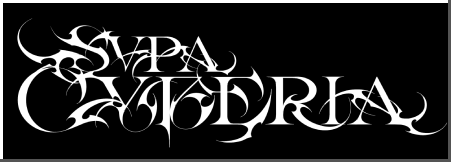August 31st, 2024
Every now and then something happens that serves as a glaring reminder of how gutted the current state of music journalism really is. The most recent case of this happened just this week, when Pitchfork magazine covered the announcement of the new album by Godspeed You! Black Emperor, “No Title As of 13 February 2024 28,340 Dead”. Th title, of course, refers to the reported death count of Palestinian civilians massacred by the offensive forces of Israel. This article, written by Matthew Strauss, includes the following:
“The title of “No Title As of 13 February 2024 28,340 Dead” refers to a death toll of Palestinians, as reported by Gaza’s Health Ministry, in Israel’s war in Gaza (More than 40,000 Palestinians have now been killed in the war, according to the ministry.)”
The language that is used here essentially is meant to sound neutral. To me, however, it sounds dismissive and obscures the topic of genocide, the topic of the album title, by describing the situation as “Israel’s war in Gaza”, failing to actually mention said genocide. What should one make of this sort of language? To me it feels insulting.
How much is one able to say on a platform that was deemed progressive before acquisition by a massive corporation? In 2015 Pitchfork was acquired by Condé Nast, a mass media company who by that time also owned GQ Men’s Magazine, The New Yorker, Vogue, and under a subsidiary Advance Publications, Reddit. To my memory, in the 2010s and before the acquisition, and for some time after, Pitchfork had a reputation as a progressive platform that covered a wide variety of independent music from a wide variety of backgrounds. Following the acquisition by Condé Nast, the focus shifted away from this sort of coverage and instead Pitchfork became another “streamlined” publication focusing primarily on high charting pop music. This isn’t to say that they stopped publishing articles about smaller independent artists, but the acquisition by CN caused an obvious shift in what sort of content was being platformed, which serves as a glaring example of the psyop that is “poptimism.”
Condé Nast merged Pitchfork with GQ at the beginning of 2024 and laid off more of their writers, leaving their staff with a skeleton crew. This evokes some obvious questions. Why should a publication that has historically platformed so many women and nonbinary writers and published articles on music by women and nonbinary artists be merged directly into a men’s lifestyle magazine? In this article written for The Guardian by Pitchfork's Laura Snapes she notes that “incorporating Pitchfork into a men’s magazine also cements perceptions that music is a male leisure pursuit”. She wonders if GQ will invest any resources into reports such as the report written by Marc Hogan about Win Butler’s sexual misconduct and Amy Zimmerman’s report about Mark Kozelek’s sexual misconduct. After looking at GQ’s culture news column for the last couple of weeks and finding it is mostly empty articles about which movies to watch on Netflix or coverage of the return of Oasis, my immediate and cynical assumption is: probably not. These days getting coverage on Pitchfork, or being awarded Best New Music just don’t seem to be quite the accolades that they were once considered. The publication has been utterly lobotomized.
The decomposition process of music publications has been sort of worrying to me ever since TinyMixTapes went on a permanent hiatus at the beginning of the decade. Social media and clickbait, dictated by algorithms, now dominate the social landscape, leaving individual influencers and YouTubers to further fester in the swamps of microblogging sites. Many major publications have become virtually identical in their presentation and language while drowning out smaller publications and individual critics. Is it any wonder that most people, not caring for the former and not being exposed to the latter (since people are used to read only what is thrown in front of them), opt not to read music journalism at all anymore? Given that the quality of writing has degraded, feeling less informative and more like someone's opinion, or an attempt to pass the Turing test of conventional music taste, why bother reading these publications? Instead, people now choose the immediacy of video journalism from established influencers, making our trusted voices people who oftentimes sacrifice analytical ability for viewer accessibility.
Some of these people are individuals who saw the video approach popularized by TheNeedleDrop and elected to further simplify, dramatize, and gamify it. My example for this is going to be “Brad Taste in Music”, a braindead transphobe who shot up through Youtube’s algorithm with clickbait videos and barely surface level analysis. Brad’s ego as an internet personality superceded any desire to talk about anything in a way that matters, deciding instead (for whatever reason) to focus on making “novelty” rap music about being a “crack seller” and siccing his rabid fans onto queer furry musicians. I can’t say I'm a fan of a few individual influencers becoming the most trusted voices in music over teams of writers with collective goals. Someone like Anthony Fantano is a considerably different demographic from myself: he is a highly opinionated, stubborn critic who nevertheless is prone to be swayed hype cycles and recency bias as anybody else is. I was online enough as a teenager to recall his weird libertarian phase in which he was attempting to be palatable to an audience closer to that of Million Dollar Extreme, that he eventually and suddenly deleted all traces of. Be that as it may, he at least doesn't try to start controversy with small artists or talk about small artists only to give them purely negative attention, which is commendable.
I have no way of measuring how many independent music listeners pay serious attention to either the music that they listen to or the videos about the music that they listen to, but given the short attention spans forced onto most people by social media feeds, I worry there aren't many. I fear most people make music listening into a secondary activity to soundtrack their primary activity (i.e. gaming) and, as far as watching video reviews goes, either skip to the point they care about (namely the score) or simply have them on in the background, a common usage of YouTube video essays which is a whole different can of worms.
Everyone considers themselves a critic these days, a culture analyst, a reviewer, but for most people analytical writing is unrewarding, and it further disappears with the sharp increases in youth anti-intellectualism. The need for quick dopamine through digital reward mechanisms leaves us in a world full of egotistical self-proclaimed culture critics who think that their numerical rating and the two sentences they wrote about a piece of music at a fifth grade level should be seen and praised, even when a lot of people cannot seem to force themselves into active listening instead of half paying attention while playing Fortnite.
The discussion is lobotomized.


















































